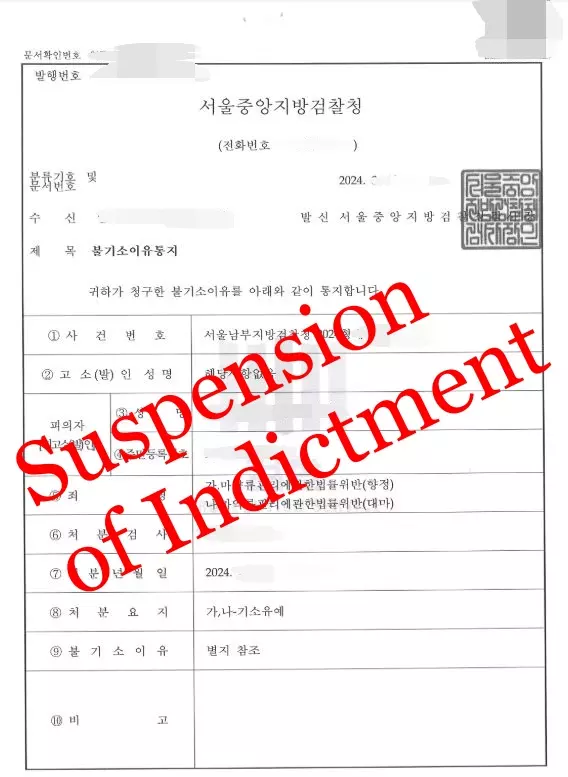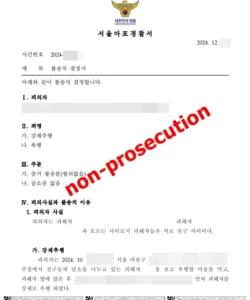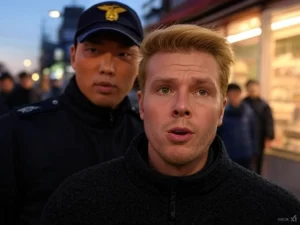Recently, the criminal defense attorney in Seoul at Law Firm LEE&LEE represented a U.S. sports star in a criminal case here in Korea and successfully achieved a positive outcome for the client. Our criminal defense lawyer, who is a listed attorney with the US Embassy, effectively defended the American athlete, which allowed him to return to the US in time to continue with his scheduled competitions.
1. Investigation and Departure Ban after Being Caught by Korean Customs
Table of Contents
The American client was traveling to South Korea while in possession of cannabis and dextroamphetamine, which is a prescription medication for ADHD. He was then detected by customs during the baggage inspection at the Gimpo Airport in South Korea.
Since the possession of cannabis and amphetamines is illegal in South Korea, he was investigated by the prosecution for violating Korea’s Narcotics Control Act and was therefore prohibited from leaving the country. This turned out to be another major problem, since the client was scheduled to participate in a match in the United States the following week. If his case was not resolved, he could be banned from leaving South Korea for an extended period, potentially putting his athletic career at great risk.
2. South Korea’s Strict Drug Laws
South Korea classifies amphetamine-based drugs as psychotropic drugs. In Korea, drugs containing the word amphetamine are illegal substances and it is thus prohibited to use, sell, possess, import, export, or manufacture them. In the United States, however, medication containing amphetamines can be used to treat ADHD patients, but in Korea, they are classified as narcotics and cannot be used therapeutically.
As a result, there have been many cases where Americans traveling to Korea have brought ADHD medications from the U.S. while being unaware of the differing laws, only to be detected by Korean customs, investigated by the prosecution, and banned from leaving the country.
The relevant South Korean law states the following:
| Narcotics Control Act | |
| Article 4 (Prohibition of Handling Narcotics by Persons Other than Persons Handling Narcotics) |
① No person other than a person handling narcotics shall engage in any of the following acts: 1. Possessing, owning, using, transporting, controlling, importing, exporting, manufacturing, preparing, administering, giving or receiving, trading, assisting in trade of, or delivering narcotic drugs or psychotropic substances; |
| Article 60 (Penalty Provisions) |
① Any of the following persons shall be punished by imprisonment with labor for not more than 10 years or by a fine not exceeding 100 million won: 2. A person who trades, assists in the trade of, gives or receives, holds, possesses, uses, controls, prepares, administers, or delivers, the psychotropic substances or other psychotropic substances containing their substance under subparagraph 3 (b) and (c) of Article 2, or who issues a prescription for psychotropic substances, in violation of Article 4 (1) |
At Law Firm LEE&LEE, our criminal defense lawyers have handled many drug-related cases involving foreign nationals and are experienced in resolving such cases quickly. With our lawyer’s effort, the client’s departure ban was successfully lifted, and he was able to return to his home country within just a few days.
3. Role of the Korean Criminal Defense Attorney in Seoul
Our criminal defense attorney asserted our client’s innocence to the prosecution with the following arguments:
1) The client is a male U.S. citizen who has no prior convictions for dealing drugs, neither in the United States nor in South Korea. He was investigated by the prosecution for violating the Korean Narcotics Control Act after being caught by customs while entering Gimpo Airport with dextroamphetamine pills, that he had for purposes of ADHD treatment, as well as a small amount of cannabis that he had been using in the U.S.
2) However, the client was able to prove that he was using the dextroamphetamine for medical purposes in the United States with a doctor’s prescription.
3) In addition, cannabis is already legalized in Hawaii, New York, Nevada, and other states where the client usually resides.
4) The client traveled to Korea for tourism purposes, and there was no indication that he intended to distribute or sell drugs.
5) The client has admitted his wrongdoing and is seeking leniency.
As a result of our criminal defense lawyer’s defense, the prosecution ultimately decided not to prosecute the case, so the case was closed and the client’s travel ban was lifted within just 48 hours, allowing him to quickly return to the United States. The client, who had a big game the following week, was very relieved and left Korea through Incheon Airport.
4. Taking Immediate Action by Hiring a Criminal Defense Attorney as a Foreigner in Korea
Cases of people who enter Korea while carrying cannabis, amphetamines, etc., who are then caught by Korean customs and subsequently prosecuted, are not uncommon. The problem, however, is that these individuals are prohibited from leaving Korea, and are thus unable to return to their workplace or tend to other obligations and schedules in their home country, which can oftentimes be very damaging.
In such cases, it is important to hire an experienced criminal defense lawyer as soon as possible, who can help you take immediate action to ensure that the case is resolved in the shortest possible timeframe.




